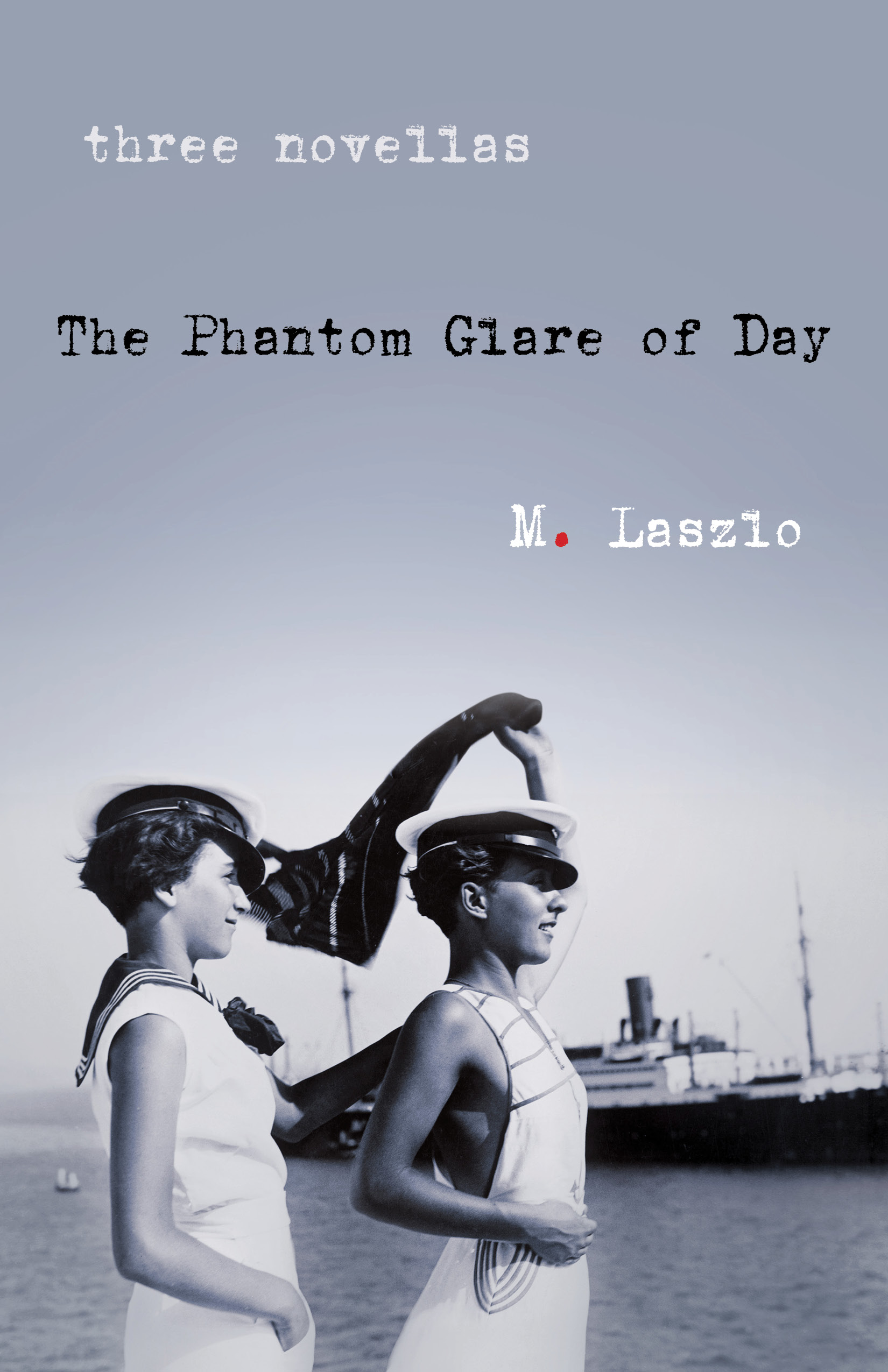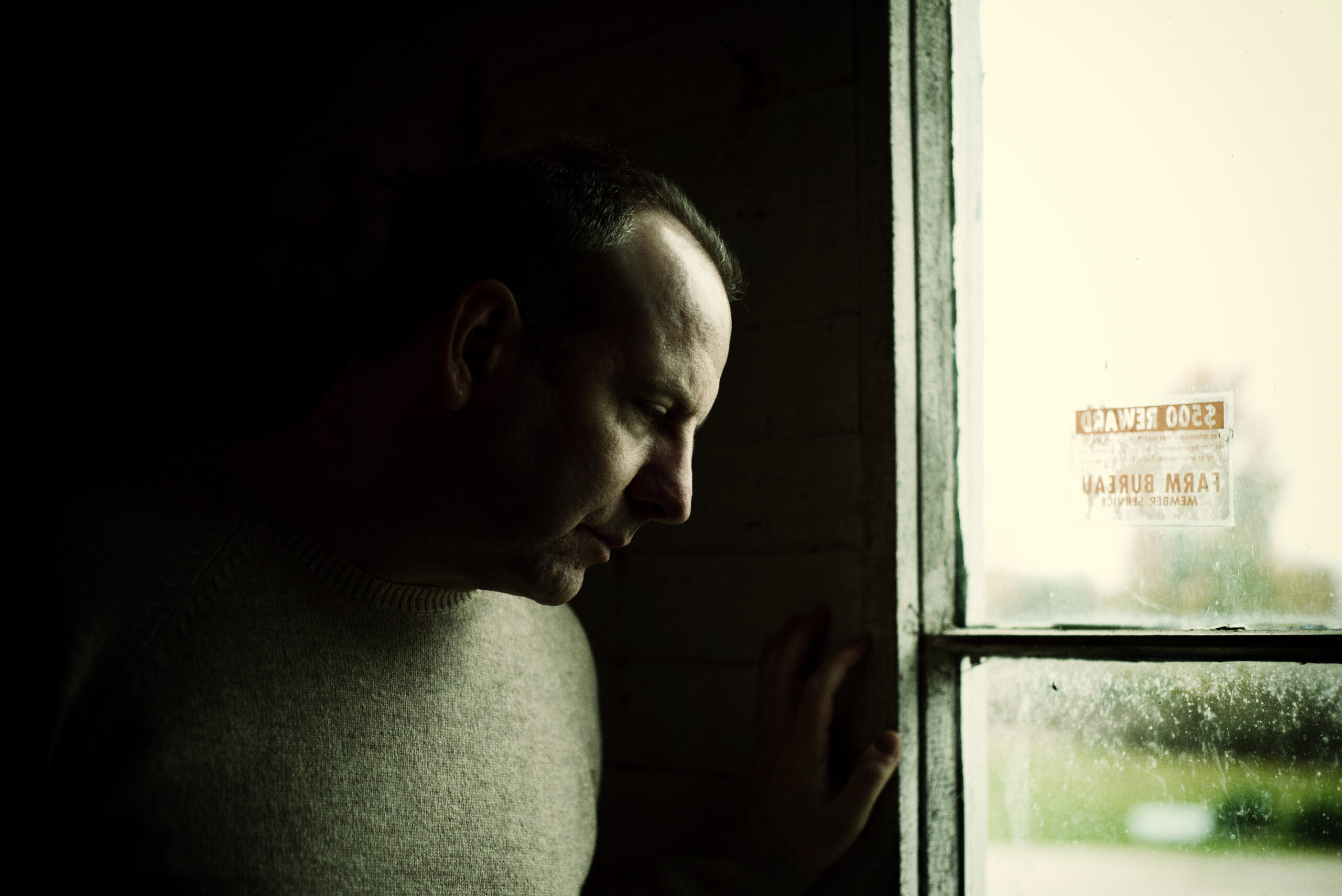 Eerie stories perfect for fans of Haruki Murakami and Kate Atkinson
Eerie stories perfect for fans of Haruki Murakami and Kate Atkinson
BATH, Ohio – Step into the shocking, strange, and unforgettable stories of three women entering adulthood through a series of grim events in this genre-bending debut by M. Laszlo. Using his own personal journals, M. Laszlo creates an illusion of happiness struck down by the realities of society during the height of WWI and post-WWI Europe. The Phantom Glare of Day (SparkPress, Nov 1, 2022) is a trio of novellas that will shock and surprise you as each woman faces a series of events more unforeseen than the next, in an enigmatic collection that is sure to become a cult classic.
Having spent years abroad writing on his experiences, M. Laszlo combines the journals from his youth with his uncanny imagination and vintage writing style into a novella collection about three women facing strange, dire circumstances.
“The Ghost of Sin” tells of Sophie, a young lady who has lived a sheltered life and consequently has no idea how cruel public school bullying can be. When she meets Jarvis, a young man obsessed with avenging all those students who delight in his daily debasement, she resolves to intervene before tragedy unfolds. “Mouvements Perpétuels” tells of Cäcilia, who feels unable to resist when her ice-skating instructor attempts to take advantage of her. Not a month later, she realizes that she is pregnant and must choose between an abortion and her ice skating career. “The Daughters of Lillth” tells of Manon, a young lady who falls in love with a beautiful actress after taking a post as a script girl for a film company—and is subsequently confronted with the pettiest kinds of homophobia.
Specific to their time yet unquestionably relevant for women today, The Phantom Glare of Day is an understanding coming-of-age story with a compelling interrogation of who gets to decide what is right and what is wrong.
“The Phantom Glare of Day”
M. Laszlo | November 1st, 2022 | | Historical Fiction
Paperback | 9781684631759 | $17.95
Ebook | 9781684631759 | $9.95
 M. Laszlo: M. Laszlo is the pseudonym of a reclusive author living in Bath, Ohio. According to rumor, he based the pen name on the name of the Paul Henreid character in Casablanca, Victor Laszlo.
M. Laszlo: M. Laszlo is the pseudonym of a reclusive author living in Bath, Ohio. According to rumor, he based the pen name on the name of the Paul Henreid character in Casablanca, Victor Laszlo.
He has lived and worked in New York City, East Jerusalem, and several other cities around the world. While living in the Middle East, he worked for Harvard University’s Semitic Museum. He holds a bachelor’s degree in English from Hiram College in Hiram, Ohio and an M.F.A. in poetry from Sarah Lawrence College in Bronxville, New York.
His next work is forthcoming from SparkPress in 2024. There are whispers that the work purports to be a genuine attempt at positing an explanation for the riddle of the universe and is based on journals and idea books made while completing his M.F.A at Sarah Lawrence College.
In an interview, M. Laszlo can discuss:
- His time living in London as a teen and its inspiration in his novellas
- How he assembled his personal journal into a trio of novellas focused on fictional characters
- Using the diverse themes and modern social issues and set them in during WWI and post-WWI Europe
- Creating three novellas that seamlessly blend into each other while also being completely independent
- His reclusive life and how looking back at his journals inspired him to be an author
An Interview with M. Laszlo
1. What inspired you to write a collection of short stories rather than one overarching narrative story?
Honestly, this work had to be a collection of different works because that was the easiest way to use all the disparate source material. It’s not always good to take the easiest way out, but this was my first book—so I figured why not? From here on, the challenge will be to break apart each idea book so as to create a singular narrative arc. As such, subsequent works will make The Phantom Glare of Day look like child’s play.
2. How did your time living in London affect your process with writing stories set in London? Did it help you capture the city in words?
London introduced me to Britspeak, British colloquialisms, and British phraseology—the kinds of things that don’t necessarily make it into great British novels. At any rate, London made me realize that dialogue has to be real—that characters ought to talk the way people really talk. In a sense, Britspeak does help capture London in that Britspeak makes the characters REAL.
3. What was the process of taking your journals and turning them into fiction like? How did it inspire your work?
At first, the process was entirely scientific: to make sense of all that teenage angst, it was necessary to cut things apart and to isolate variables. Having done that, only brainstorming could help to fill in the blank spaces and to turn the material into actual narrative arcs. Of course, that aspect of the process was anything but scientific.
4. What part of the writing process was most difficult?
It was easy to cut up the journals and to divide ideas into sensible categories. The brainstorming part was the difficult part, of course. After all these years, decades really, the process became a game of finding real, meaningful relationships between disparate concepts. And the stories followed of their own accord.
5. How do these historical stories fit into the narrative we are all facing in our current, modern lives? What will we learn from your characters?
The ethical issues that face modern society never really change all that much. The struggles are eternal and part and parcel of the human condition. My guess is that every reader will learn something different from interacting with my characters. It’s all down to the fact that every reader is unique and struggles with the big moral issues in his or her own way.
6. Why set the stories during WWI rather than in modern day?
Honestly, it all comes down to my love of steampunk and the peculiar technological contraptions of the early twentieth century. As odd as it seems, there’s nothing more romantic! Also, I really want these novellas to be timeless—and few events in history seem as hauntingly timeless as the Great War. At least, that’s always been my feeling.

A former award-winning journalist with national exposure, Marissa now oversees the day-to-day operation of the Books Forward author branding and book marketing firm, along with our indie publishing support sister company Books Fluent.
Born and bred in Louisiana, currently living in New Orleans, she has lived and developed a strong base for our company and authors in Chicago and Nashville. Her journalism work has appeared in USA Today, National Geographic and other major publications. She is now interviewed by media on best practices for book marketing.
